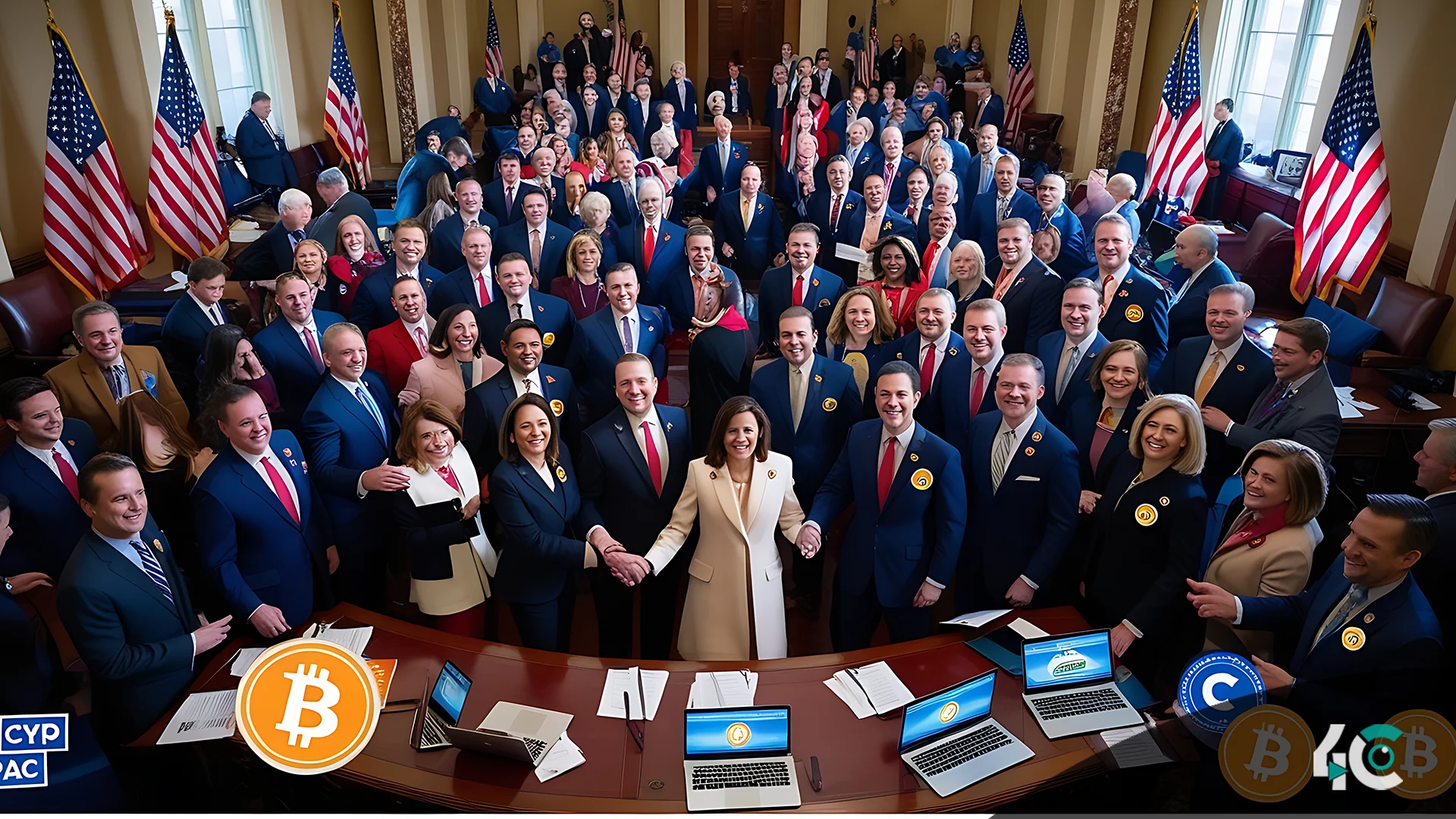The bitcoin business has led to the election of pro-crypto politicians in the 119th US Congress. These legislators, who successfully raised funds during the 2024 elections, are now in a position to influence the future of cryptocurrency regulation in the US.
Large cryptocurrency businesses sponsor political action committees (PACs) like Fairshake, which have spent millions of dollars backing candidates who share the industry’s interests. What’s the outcome? Major victory in the Senate and the House of Representatives. Notably, Fairshake affiliates sponsored candidates across party lines, guaranteeing bipartisan support for crypto-friendly legislation.
Approximately $40 million in PAC funding aided Bernie Moreno’s victory over incumbent Ohio Senator Sherrod Brown, one of the most notable victories. This victory shifted the Senate to Republican control and secured a seat for a blockchain entrepreneur. Similarly, in Alabama, $1.7 million in media support helped Shomari Figures win a House seat. Overall, 63 additional House members benefited from Fairshake’s influence, demonstrating the PAC’s extensive reach.
The crypto sector exerted influence over ten newly elected senators, with funding ranging from individual contributions to multimillion-dollar PAC spending. Ripple co-founder Chris Larsen donated $6,600 to Maryland Senator Angela Alsobrooks, while the Protect Progress PAC gave nearly $10 million to Michigan Senator Elissa Slotkin. These attempts demonstrate how targeted financial support influenced results in competitive races.
The new Congress is projected to have around 270 pro-crypto legislators, with a strong majority in the House. This agreement might speed up the passage of crucial legislation like the Financial Innovation and Technology for the 21st Century Act (FIT21). Industry advocates feel that this shift in representation will help overcome regulatory issues that have hampered growth and investment in the cryptocurrency sector.
With over $103 million in reserves, crypto PACs like Fairshake remain well-funded for the 2026 elections. This financial weaponry, mostly provided by Coinbase and Ripple, demonstrates the industry’s determination to maintain and increase its influence in Washington.
As these lawmakers assume office, their support for the cryptocurrency industry has the potential to transform the regulatory landscape, encouraging innovation while alleviating investor fears. The political alignment between Congress and the executive branch in 2025 may be a watershed moment for cryptocurrency policy in the United States.



































